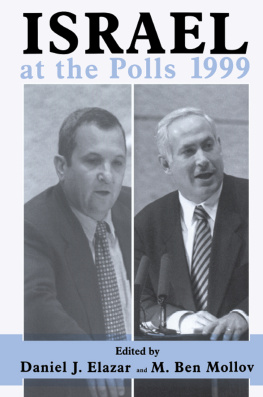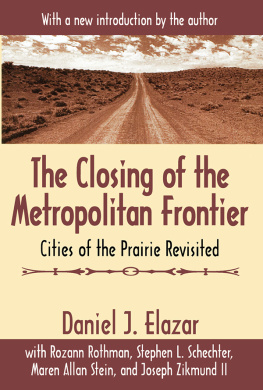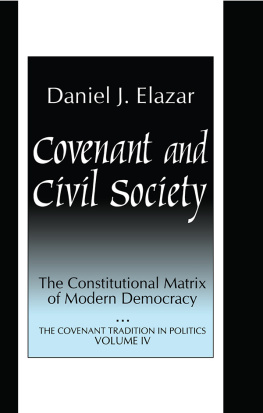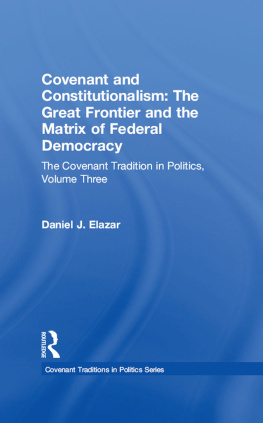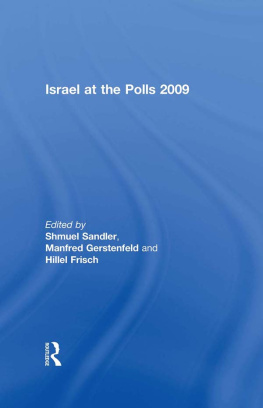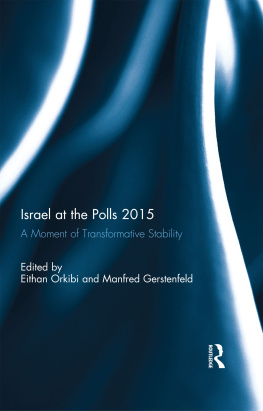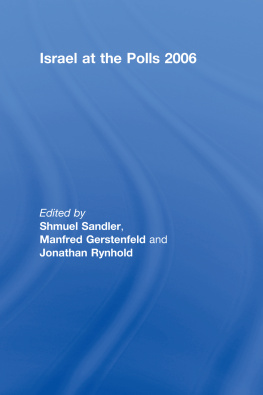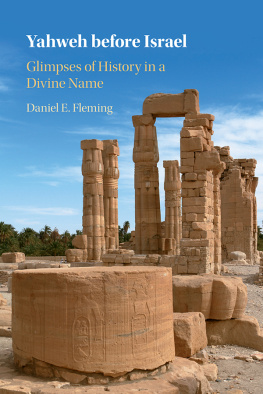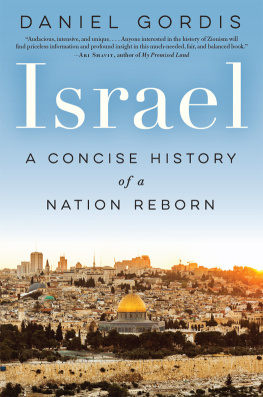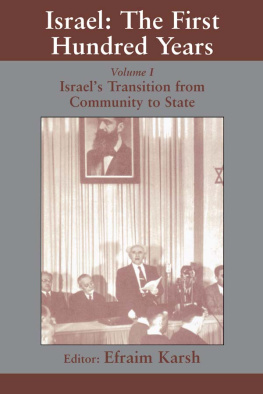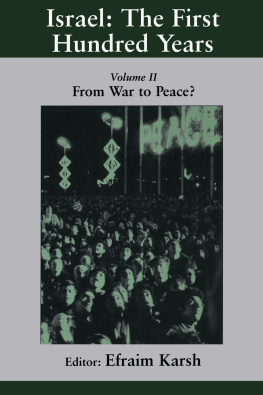ISRAEL AT THE POLLS 1999
CASS SERIES: ISRAELI HISTORY, POLITICS AND SOCIETY
Series Editor: Efraim Karsh
ISSN: 1368-4795
This series provides a multidisciplinary examination of all aspects of Israeli history, politics and society, and serves as a means of communication between the various communities interested in Israel: academics, policy-makers, practitioners, journalists and the informed public.
1. Peace in the Middle East: The Challenge for Israel, edited by Efraim Karsh.
2. The Shaping of Israeli Identity: Myth, Memory and Trauma, edited by Robert Wistrich and David Ohana.
3. Between War and Peace: Dilemmas of Israeli Security, edited by Efraim Karsh.
4. U.S.-Israeli Relations at the Crossroads, edited by Gabriel Sheffer.
5. Revisiting the Yom Kippur War, edited by P. R. Kumaraswamy.
6. Israel: The Dynamics of Change and Continuity, edited by David Levi-Faur, Gabriel Sheffer and David Vogel.
7. In Search of Identity: Jewish Aspects in Israeli Culture, edited by Dan Urian and Efraim Karsh.
8. Israel at the Polls, 1996, edited by Daniel J. Elazar and Shmuel Sandler.
9. From Rabin to Netanyahu: Israels Troubled Agenda, edited by Efraim Karsh.
10. Fabricating Israeli History: The New Historians, second revised edition, by Efraim Karsh.
11. Divided Against Zion: Anti-Zionist Opposition in Britain to a Jewish State in Palestine, 1945-1948, by Rory Miller.
12. Peacemaking in a Divided Society: Israel After Rabin, edited by Sasson Sofer.
13. A Twenty-Year Retrospective of Egyptian-Israeli Relations: Peace in Spite of Everything, by Ephraim Dowek.
14. Global Politics: Essays in Honour of David Vital, edited by Abraham Ben-Zvi and Aharon Klieman.
15. Parties, Elections and Cleavages; Israel in Comparative and Theoretical Perspective, edited by Reuven Y. Hazan and Moshe Maor.
16. Israel at the Polls 1999, edited by Daniel J. Elazar and M. Ben Mollov.
17. Public Policy in Israel, edited by David Nachmias and Gila Menahem.
Israel: The First Hundred Years (Mini Series), edited by Efraim Karsh.
1. Israels Transition from Community to State, edited by Efraim Karsh.
2. From War to Peace? edited by Efraim Karsh.
3. Politics and Society Since 1948, edited by Efraim Karsh.
4. Israel in the International Arena, edited by Efraim Karsh.
5. Israel in the Next Century, edited by Efraim Karsh.
Israel at the Polls 1999
Edited by
Daniel J. Elazar
and M. Ben Mollov
First published in 2001 in Great Britain by
FRANK CASS PUBLISHERS
Crown House, 47 Chase Side,
Southgate, London N14 5BP
and in the United States of America by
FRANK CASS PUBLISHERS
c/o ISBS
5824 N.E. Hassalo Street
Portland, Oregon 97213-3644
Transferred to Digital Printing 2004
Website: www.frankcass.com
Copyright 2001 Frank Cass & Co. Ltd
British Library Cataloguing in Publication Data
Israel at the polls, 1999. (Cass Studies in Israeli history, politics and society ; 16)
1. Israel. Knesset Elections, 1999
I. Elazar, Daniel J. (Daniel Judah) II. Mollov, M. Ben
324.95694054
ISBN 0 7146 5168 0 (cloth)
ISBN 0 7146 8180 6 (paper)
ISSN 1368-4795
Library of Congress Cataloging-in-Publication Data
Israel at the polls, 1999 / edited by Daniel J. Elazar and M. Ben Mollov.
p. cm. (Israeli history, politics, and society, ISSN 1368-4795)
This group of papers first appeared in a special double issue of Israel affairs 7/23 (winter 2000) T.p. verso..
Includes bibliographical references and index.
ISBN 0-7146-5168-0 (cloth) ISBN 0-7146-8180-6 (pbk.)
1. Elections Israel History 20th century. 2. Political parties Israel History 20th century. 3. Communication Political aspects Israel History 20th century. I. Elazar, Daniel Judah. II. Mollov, M. Benjamin. III. Series.
JQ1830.A95 I8 2001
324.95694054dc211 | 2001028309 |
This group of papers first appeared in a Special Double Issue of Israel Affairs 7/23 (Winter/Spring 2001), Israel at the Polls 1999 ISSN 1353-7121 published by Frank Cass.
All rights reserved. No part of this publication may be reproduced, stored in or introduced into a retrieval system or transmitted in any form or by any means, electronic, mechanical, photocopying, recording or otherwise, without the prior written permission of the publishers of this book.
Dedication
At the conclusion of this undertaking, Professor Daniel J. Elazar tragically passed away. It is to his memory that this volume is dedicated.
Daniel Elazar was a noted scholar and teacher, and prolific writer and editor who pioneered in the areas of federalism, the Jewish political tradition, and the study of Israeli politics. May his memory be for a blessing.
And I directed my heart to inquire and to search out by wisdom concerning all that is done.
Ecclesiastes 1:13
Acknowledgement
The editors would like to thank the Milken Family Foundation for supporting the preparation of this volume for publication as part of the Milken Library of Jewish Public Affairs of the Jerusalem Center for Public Affairs.
Contents
Daniel J. Elazar and M. Ben Mollov |
Giora Goldberg |
Ami Pedahzur |
Etta Bick |
Vladimir Khanin |
Efraim Torgovnik |
Hillel Frisch |
Gerald M. Steinberg |
Barry Rubin |
Eytan Gilboa with Yaron Katz |
Atara Frenkel-Faran and Sam Lehman-Wilzig |
Dov Teeni, Nachshon Margaliot and Yaacov J. Katz |
Manfred Gerstenfeld |
Yael Yishai |
DANIEL J. ELAZAR and M. BEN MOLLOV
On 17 May 1999, Israel went to the polls to elect the 15th Knesset. After a lacklustre beginning, the campaign commanded considerable domestic and international attention. Out of 4,285,000 eligible voters,1 3,309,494 citizens cast their ballots,2 making this election consistent with the usually high Israeli turnout figures of close to 80 per cent.3 The election occurred a year ahead of schedule following the passage of a parliamentary no-confidence motion in which both the left and extreme right coalesced to bring down the government.
Ehud Baraks victory came as a result of dissatisfaction with the personality of Israeli Prime Minister Netanyahu, internal cleavages and acrimony within Israeli society and its political culture, and a perceived worsening of Israels international and regional environment. Yet Netanyahus defeat at the polls was far from inevitable as he commanded some deep layers of support. However, a skilful campaign by Barak helped to maximize the challengers strengths while minimizing his weaknesses.
To appreciate the dynamics and significance of the 1999 election campaign, first a brief retrospective is in order.

